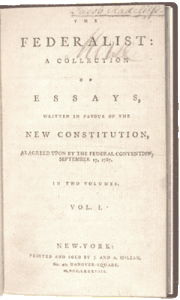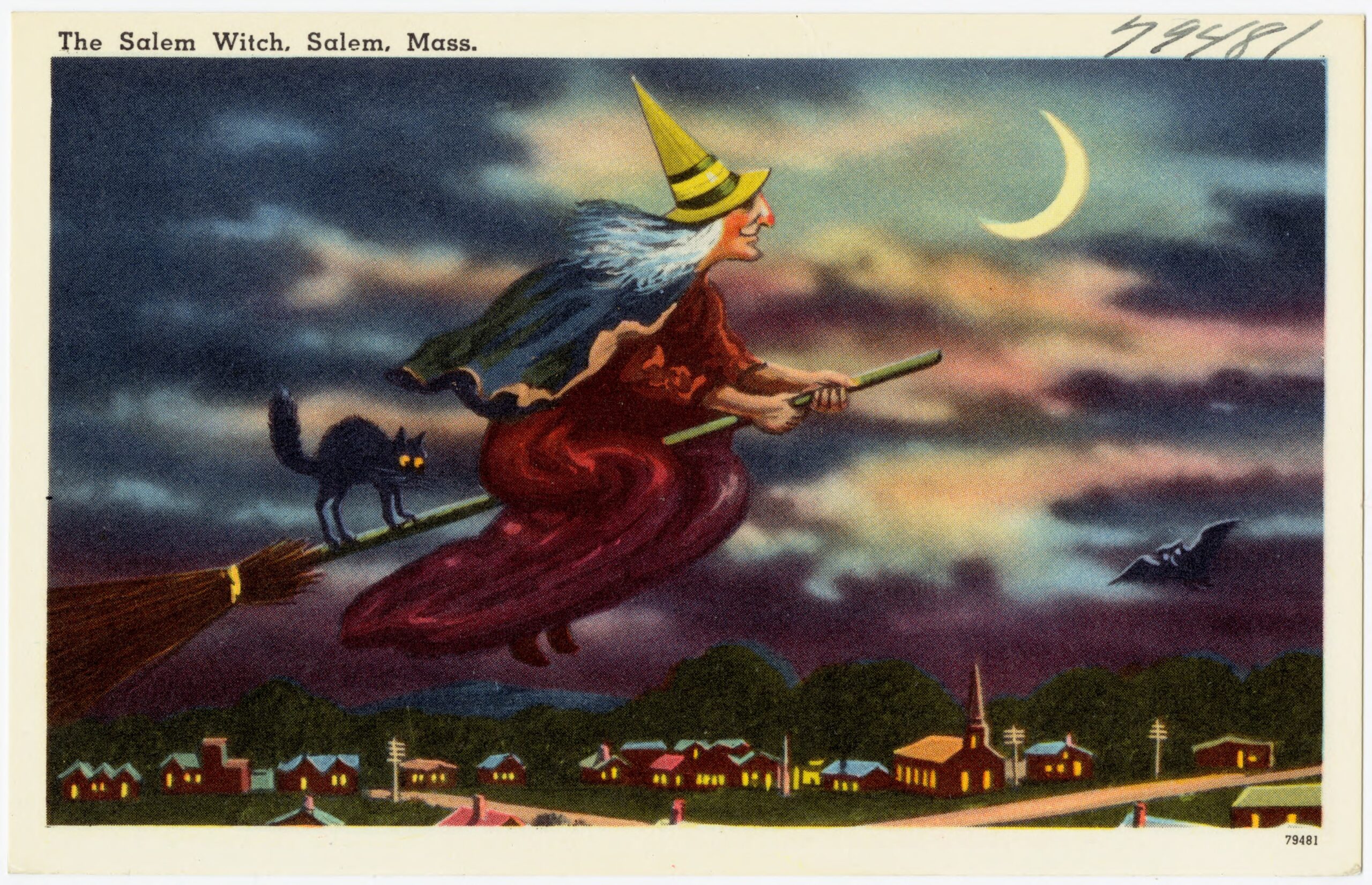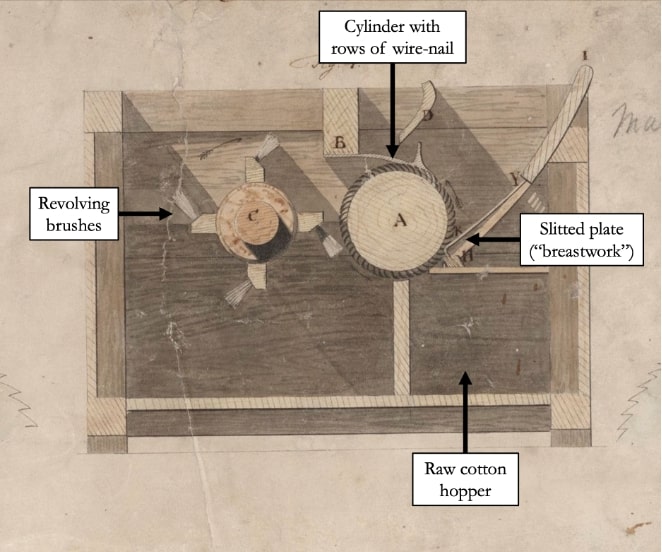On the weekend after the midterm congressional elections of 1998, I flew east to appear with a score of constitutional scholars before the Judiciary Committee of the House of Representatives. The subject of the hearing was the background and history of impeachment, and the occasion was the impending impeachment of President William Jefferson Clinton. Prior to the hearing, Forrest McDonald and I spent a pleasant hour discussing the subject on C-SPAN’s morning Washington Journal program. The highlight of that hour came when Brian Lamb replayed an excerpt from an interview he had conducted with Forrest back in the mid-1980s. When asked what one would see if one ventured out to the McDonald farm outside Tuscaloosa to catch the historian in the act of writing (in flagrante delicto, as it were), Forrest’s eyes dart to the side, a smirk briefly crosses his face, followed by the disarming confession that he writes in the nude–at least in the summer. From the studios opposite Union Station, we grabbed a cab to the House office building on the far side of the Capitol, and checked in with the committee staff; then we went to the main hearing room and took our places.
Thinking of that moment ever since has reminded me of the scene in Larry McMurty’s Lonesome Dove where Gus has to hang Jake Spoon, his Texas Ranger buddy gone bad, for throwing in his lot with the evil Suggs brothers. Gus says something like, “I’m sorry you crossed the line, Jake,” and Jake, distracted by the noose, replies something like, “I never seen no line to cross.” Walking into the committee room, I felt I had crossed a line as well. Testifying as an expert, and effectively taking sides in a highly charged political dispute, is not a role that historians assume readily, nor is it an opportunity that comes our way with any frequency. Forrest professed to be testifying only as an impartial scholar, but I, for one, wasn’t buying his line, nor was I so naive about my own sentiments as to claim to act in the same capacity. I am a native Cook County Democrat, with family ties to the old machine of the elder Richard J. Daley, and proud of it, and I thought then, as I do now, that Hillary Rodham Clinton (coincidentally the mother of one of my better-known students, though we had not yet been introduced) was close to the mark in her famous remark blaming a “vast right-wing conspiracy” for the impeachment.
For many historians, becoming professionally involved in a partisan conflict (such as these hearings) or in litigation (which I have also done) risks crossing the line between scholar and advocate. Professional historians should have no problem in admitting ambiguity or uncertainty in our findings, but political and legal disputes leave little room for scholarly hemming and hawing. Of the nineteen “experts” testifying on November 9, only one, Michael Gerhardt of William and Mary, appeared in a neutral capacity. The others had been summoned by one party or another. My own invitation came through the assistance of my Stanford colleague, Deborah Rhode, then serving as a staff attorney for the committee’s Democratic minority.
For my part, I have to confess that I was not uncomfortable in this role. For one thing, I had already begun writing op-ed essays about the constitutional issues raised by impeachment, and had formed a position strongly critical of the theory upon which it was proceeding. For another, I felt, with characteristic immodesty, that my work on the origins of the Constitution offered a perspective on the Impeachment Clauses that only a handful of scholars were qualified to present. Legal scholars aplenty would be testifying, but they are used to adversarial argument, and cavalierly happy to deploy whatever materials serve the cause they favor without the historian’s due regard for the limits and ambiguities of the evidence. I had spent more than a decade developing a model or method for conducting inquiries into the original meaning of the Constitution, with due respect for the rules of using historical evidence, and this was too good an opportunity to pass up. Moreover, I felt then, and still believe now, that historians have a civic obligation to bring their knowledge to bear, even if it involves taking sides in a partisan dispute. Obviously it would be better to do so in a more balanced, less partisan forum. But if that is all that is available, why should we forego the opportunity, challenge, and obligation? The test has to be whether what one is prepared to argue in this public role is consistent with what one has written as a scholar. On this count, I had no qualms about my ability to present an originalist argument against the legitimacy of Clinton’s impeachment that would fully comport with the discussion of the presidency in my book, Original Meanings: Politics and Ideas in the Making of the Constitution (New York, 1996).
The hearings got off to a curious start. Although most of the full committee attended most of the day, the hearings were held under the auspices of the subcommittee on the Constitution, chaired by my fellow Haverford College alumnus, Charles Canady. I was naive enough to suppose that Canady might begin by thanking the witnesses for taking time out from their schedules to help enlighten the members on a truly difficult subject. Instead, his opening remarks seemed to amount to saying, we have a rope, yonder is the tree, and all we need is to catch the evildoer and string him up.
An even more curious interlude followed. Television monitors were turned on, and the members of the committee sat raptly watching a ten-minute video consisting primarily of earnest statements about the gravity of impeachment culled from the Watergate proceedings of 1974. This struck me as a strange way to get the members in the mood, but who was the historian to judge? Having been assigned to the afternoon panel, I sat back and prepared to watch the proceedings unfold.
One lesson became evident fairly quickly. The Judiciary Committee’s reputation as the most partisan and ideologically polarized committee on the Hill was well deserved. The tone of the questioning was sometimes amiable, especially when members were questioning friendly witnesses. But from Canady’s opening remarks on, it was difficult to ignore the intensely partisan character of the proceedings, or to resist the conclusion that the hearings were basically a sham because the members already knew (barring some unforeseen political contingency) how they would vote.
As a close student of the political debates of the Revolutionary era, I have always assumed that legislative debate must matter at some level–that there must be a point to deliberations. Yet it was sobering to observe and participate in a discussion where all the positions to be taken are preordained, where the rhetorical moves each side can make are sharply constrained by the structure of the dispute and the limits of the available evidence, where debate as such can therefore have little, if any, impact. Although “pre-commitments” were not possible for many of the issues that the revolutionaries faced in the 1770s and 1780s, the hearings were a useful reminder of the lesson that historians ignore context and circumstance only at their peril.
The second great lesson I took away from the impeachment proceedings came when I had to ask myself what, if anything, I had been able to add to the discussion–as nondeliberative as it turned out to be.
Here I have to begin by describing my substantive position on the merits of impeachment. In Original Meanings, I had argued that the establishment of the presidency proved to be the single most difficult and puzzling problem in institutional design that the Framers of the Constitution had confronted. There were no useful antecedents for the national republican executive the Framers contemplated and there were numerous perplexing uncertainties about the proper mode of election and the political dimensions of executive power. These considerations help to explain why the Framers literally looped around in their attempts to decide such interlocking questions as the mode of election, eligibility for re-election, length of term, and method of removal–including, of course, impeachment. The key decisions on the presidency emerged only during the final fortnight of debate, and even then, the key initiatives came out of the so-called Committee on Postponed Parts.
If any one factor best explained the eventual design of the presidency, I argued, it was the Framers’ desire to make the executive as politically independent of Congress as possible, while allowing Congress (or more specifically the House of Representatives) the residual right to elect the president should the electoral college fail to produce a majority. My testimony to the committee argued that that same principle should be applied to the interpretation of the Impeachment Clause.
In the case of President Clinton, the key problem was to determine whether the phrase “other high crimes and misdemeanors” should be read narrowly or expansively. A narrow reading would limit impeachment to offenses that amounted to a clear abuse of the public trust in the performance of official duties. A broad reading would leave much more to the discretion of Congress, and arguably embrace the kinds of nonofficial failings for which Clinton stood exposed. If one wanted to reason as an originalist, a narrow reading would be consistent with the idea that the Framers worried about leaving the president vulnerable to congressional pressure and manipulation–which is what the records of debate seemed to me to suggest. A broad reading of “high crimes and misdemeanors” carried the opposite implication–that the Framers wanted to make the president politically subservient to Congress–and that seemed incompatible with the evolution of the presidency through the course of the Federal Convention.
By the time my turn came to testify, the atmosphere in the committee room had eased considerably. The mood during the morning session had seemed quite charged, especially when Republican members took issue with Arthur Schlesinger Jr., for asserting that gentlemen always lied about sex. But by late afternoon, some of the committee members had absented themselves, and our circadian rhythms clicked in.
Reading my testimony and trying to gauge what sense the committee members could possibly make of it led to another insight. As much as members of Congress like to praise the Founders and cite useful passages from The Federalist to demonstrate their own learning, their sense of history is both underdeveloped, on the one hand, and distorted by their romantic attachments to the founding era, on the other. All of them, I am convinced, feel a deep kinship and sense of gratitude to the founding generation, for establishing the institutions and offices they now love to inhabit. All of them know how to wallow in the conventional trappings and expressions of American patriotism.
But few of them know much about how the Constitution was drafted, or have a good grasp of the political disputes and conceptual uncertainties of the Revolutionary era. They are much more inclined to think of the Framers imparting their collective wisdom to posterity than to realize that the decisions of 1787 were reached by processes not dissimilar to the ones in which they ordinarily engage. To offer, therefore, an account of the Impeachment Clause which emphasized George Mason’s idiosyncratic role in the debates, or the difficulty of defining “high crimes and misdemeanors,” or the deep uncertainty that clouded the entire discussion of the executive branch at Philadelphia in 1787, was (I sensed) to provide an unsettling lesson that they could neither assimilate nor easily apply. I believed that immersion in the historical evidence was essential to understanding the Impeachment Clause, but as I watched the bemused (or confused) look on Chairman Henry Hyde’s face, it occurred to me that I just as well could have been speaking Greek. My account of Mason’s and Madison’s respective concerns could hardly compete with his appeals to Thomas à Becket or the Normandy war dead.
But why should history matter at all to the members of the Judiciary Committee? With the sole exception of Mary Bono, whose presence on the committee was a bit of a mystery, they were all attorneys, and therein lay a clue to the workings and mentality of the committee. They might not know much about history, but they knew a lot about the workings of the legal system, the importance of witnesses telling the truth and the likelihood that witnesses often try to shade their testimony in just the self-serving and indeed duplicitous way in which Clinton had his. Their own substantial legal experience, in other words, readily shaped the way in which they thought about impeachment; even the most compelling account of the true historical origins and ambiguities of the relevant constitutional language could only be a quaint distraction.
So the unpleasant and messy truth is that the sense of nuance that historians bring to their work cannot be readily translated into the political sphere, especially in a controversy as bitterly partisan as the impeachment imbroglio. Does that mean that historians should refrain from engaging in such controversies, in part because they have little chance to influence them, and in part because they risk compromising their objectivity? I have already been attacked twice by the distinguished jurist and overly prolific legal writer, Richard Posner, for having signed the historians’ “October surprise” advertisement challenging the House impeachment hearings before the 1998 congressional elections and otherwise participating in an avowedly political debate under the bare pretense, as he sees it, of being scholarly. I take comfort, however, from the belief that everything I wrote during the impeachment mess was consistent with my prior scholarly writings. I still believe that historians have an obligation to inform public discussions as best we can, when the opportunity arises. And as citizens, we have the same rights to exercise as anyone else. But as historians we should also understand why our contributions, which rely on the nuanced feel for the past that we have to develop to ply our trade, are likely to have little effect. I accordingly no longer believe, as I did then, that if I could just be given forty-five minutes of prime time to present the equivalent of an undergraduate lecture on the origins of the Impeachment Clause, the country could have been spared the year wasted on the whole sordid affair.
Since September 11, 2001, I have entertained one further reflection about the impeachment imbroglio. At the time, nothing was more common than to hear opinions expressed on either side as to how history would judge either the president’s behavior or the passion with which his detractors hounded him even after they knew that he would remain in office until January 20, 2001. We now know, I think, what the truer judgment of history will really be. While politics dictated that the national government be paralyzed for a year with partisan foolishness, our enemies elsewhere were making other plans for us–plans that we perhaps could have been better prepared to confront. But of course Monica was more important.
This article originally appeared in issue 2.4 (July, 2002).
Jack Rakove is the Coe Professor of History and American Studies and professor of political science at Stanford University.




















